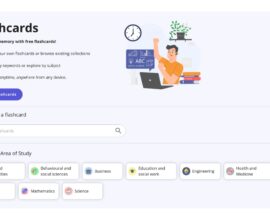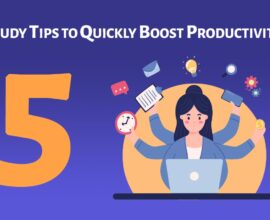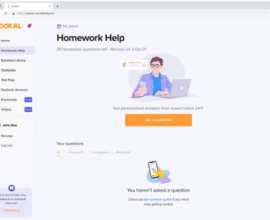Your Guide to Ultralearning and Self-Directed Study Time
Today, we’re looking at a pretty radical approach to education. Imagine mastering a new language, learning a new instrument, and getting pretty good at chess, too. You could approach it by trying a little bit of everything, taking an hour here, half-an-hour there and enjoying yourself in the process. But the simple fact is, using this approach you’re unlikely to improve much at all.
Instead, what if you took it one skill at a time and dedicated time and energy in a highly focused manner? Say you want to learn Spanish — you stop speaking English, and converse only in Spanish for a few months. This approach, which is very intense and aggressive to allow you to master complicated skills, is called ‘ultralearning’. It’s Derek Sivers’ old maxim — you can achieve anything you want in life, but only one thing at a time — turned up to the max.
What is ‘Ultralearning’?
Ultralearning, simply put, is an aggressive, self-directed approach to mastering any given skill. It encourages a highly targeted approach to any new skill, defined and outlined by author Scott H. Young, who literally wrote the book on it. It takes the concept of “deep and narrow” to an entirely new level, where through discipline and dedication, you can master new skills with unprecedented speed.
It’s not just learning faster. It’s not just self-led education. It’s not just another way to learn effectively. Ultralearning is a pretty uncommon strategy, because it’s difficult to do well. But if you can manage it, it will change your life.
In a way, studying at university is a mild form of ultralearning, as you progress through the levels of study. You dedicate significant time and energy to a single discipline, or single area of that discipline. You might spend your spare time outside of your contact hours making flashcards for study, or getting homework help. Ultralearning is a way for you to amplify this approach and become the master of your domain.
Tips for Ultralearning in Your Study Time
1. Set up
Ultralearning, like many learning strategies, requires you to find out what you want to learn and set up your project. Let’s say you want to take up playing the guitar. You’ll need to get yourself in a position to actually play and improve, right? This starts with preliminary research on the different types of guitars, purchasing one to practice on, finding yourself a teacher or online tutorials, and setting a goal. You need actionable strategies for your ultralearning projects.
Your goal should be specific and allow you to engage in intense, highly motivated practice sessions in pursuit of these complex skills.
In ultralearning, Scott H. Young encourages you to eliminate distractions, do your research before beginning and learn the hardest parts as early as possible. Don’t dive right in, as you won’t know how to critique yourself.
Instead, find out as much as you can about the skill you want to attain so you can apply this knowledge to your learning process. When you’re ultralearning for study, you want to make sure you have a good conceptual framework to start with.
2. Practice makes perfect
According to Scott H. Young, direct practice is the best way to improve your skills. This is a more intense variation of the 10,000 hour theory — namely, that it takes 10,000 hours of deliberate practice to master a skill.
If you want to learn an instrument, you need to graduate early from the research phase and quickly start playing your instrument. If you want to learn a language, you need to get talking with fluent speakers.
Confidence, or a lack thereof, is one of the biggest barriers to simply putting your skills to the test. If you can overcome this barrier you will be in good stead. If you’re studying mathematics, you need to actually try and solve problems. After all, you can’t get better at algebra without actually doing algebra.
When you’re studying and seeking to apply this effective learning approach, actually putting what you’ve learned into practice is half the battle. Sample exams, exercises to test your skills, and other forms of effective practice are all critical for you to quickly improve.
3. Find your weakest links
By diving into direct practice, you are presented with an opportunity to find your weakest links. This is also why we start with a deliberate research phase. It allows you to identify these weak links and start working on them with ruthless efficiency.
When you’re studying, particularly ahead of exam season, pull out those practice tests. Take the time to mark them when you’re done and identify where you need to improve.
Once you’ve done this, you can drill yourself. Flash cards are a great way to drill your skills. For example, if your practice test indicates that you need to improve your trigonometry, flashcards on Pythagoras’ theorem and the various properties of triangles will help fix this. You can then drill your trigonometry with trigonometry-focused tests, and continue your ultralearning journey.
This works for pretty much all skills, including languages and sports, too! That’s why you’ll often see athletes working on a weaker side of their game in the off-season.
4. Seek feedback early and often
Martial arts, like Brazilian Jiu-Jitsu (BJJ), make a great case study for skill progression. As they say in the gentle art of BJJ, if it was easy, you wouldn’t be a white belt (generally the lowest skill level). When it comes to ultralearning, consider yourself a white belt in your chosen skill, ready to progress. While most gyms and dojos will have a coach or sensei to help out, getting homework help can be trickier.
Let’s say you’re applying ultralearning to your studies. In this case, you’ll want to get some feedback from an expert as early and frequently as possible.
When learning a language, this might mean regularly talking with fluent speakers and asking them to correct your vocabulary and grammar. It might mean engaging with your professors and tutors after or during class to get their feedback on your understanding of the topic.
Feedback is vital to your studies and a great way to erase any holes in your understanding.
5. Use free recall before relying on study aids
Study aids are very helpful — they make learning and remembering easier. However, when ultralearning, you’re actively trying to make things difficult in order to get smarter, faster. That’s why you want to test your full recall and understanding before consulting any study aids.
If you’re studying a language, you should try and write an essay that’s a few thousand words long, without consulting a dictionary or any of your study materials. If you need to learn a song, try playing it all the way through without referring to your sheet music or chord charts.
Free recall is a well-studied area in the field of psychology. Using it to improve your ultralearning experience is a great way to test your understanding. You might even surprise yourself with the depth of your understanding when thrown in at the proverbial deep end. You’ll probably remember and understand more than you thought you did!
6. Cool apps aren’t always useful for ultralearning
We hate to break it to you, but fun, game-ified apps like Duolingo do not factor into the ultralearning equation. They belong firmly to the dabbling realm, which is the opposite of ultralearning. Sure, you might pick up a few phrases here and there, but really you want to be engaging in direct practice and frequent testing, rather than fun activities.
Be sure to take advantage of study apps and focus your time appropriately, which is where things like Pomodoro timers come in handy. Anything that might serve as a distraction, however, is not good for your ultralearning journey.
Transform how you learn with ultralearning
Ultralearning is an effective, if intense, self-directed learning strategy that is definitely worth trying. If you have the attention span and discipline to dig deep and apply it to your life, you may well find yourself becoming an ultralearner!
The trick with ultralearning, as with any approach to studying, is to make it work for you. Start by eliminating distractions, ensuring you have a good framework for reference, and experts in the field to consult for feedback. You can use Zookal Study to seek this feedback at any time of day, any day of the week.
At the end of the day, the best way to learn any new skill is simply to do it. Ultralearning offers an intense, jam-packed means of doing so by encouraging rigorous testing and elimination of weaknesses. This is a great way to master hard skills quickly, and it might well work for you as a major part of your study routine going forward.
You can also browse through the Zookal blog and check out more study tips, helpful hints and student recommendations!





